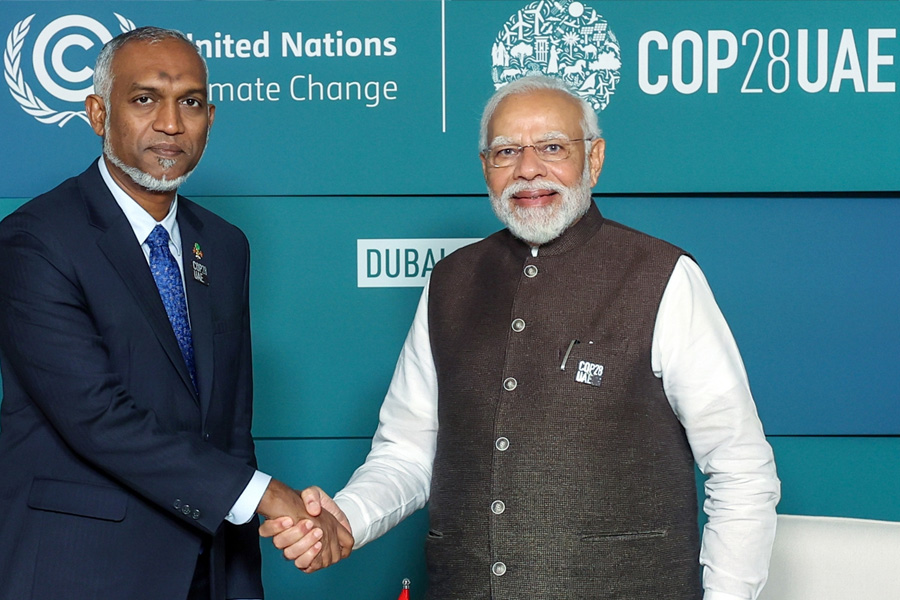
Given the growing dependence of the Maldives on China, India needs to be cautious and rethink its foreign policy focusing on its economic and political relations with the Maldives given the significance of the region for India.
Authors
Abhinav Mehrotra, Assistant Professor, Jindal Global Law School, O.P. Jindal Global University, Sonipat, Haryana, India.
Amit Upadhyay, Associate Professor, Jindal Global Law School, O.P. Jindal Global University, Sonipat, Haryana, India.
Summary
As Union Minister Kiren Riju attends the swearing-in ceremony of the Maldives President on Nov. 17, 2023, the issues surrounding the evolving China-Maldives relations and its impact on India-Maldives ties have gained momentum. It is particularly important due to the historical role played by Indian security forces in the Maldives and the future of these relations under the new regime. India and Maldives share multidimensional relations including ethnic, linguistic, and cultural ties. India was one of the foremost countries to recognise the independence of Maldives and was the first country to open resident missions in 1979. Furthermore, it was due to India’s intervention in 1988, that the Maldives government could be saved from a coup. Despite this rich history and strong bilateral ties, anti-India rhetoric and slogan such as ‘India Out’ has been frequently used in election campaigns in recent times. The 77 military personnel from India deployed in Maldives have been asked to leave immediately following the election victory of Present Muizzu.
Maldives has transformed itself from an orthodox republican state to a democracy which was one of the most significant developments in the 21st century. The first multi-party elections to the Majlis (parliament) were held in 2008 leading to the formation of the first democratically elected government. These developments have distanced India and Maldives in recent times, due to the political preferences of those elected leaders in Maldives, who are more inclined to improve their relations with China over India.
These close economic and political relations with China through the Belt Road initiative, the Maritime Silk Route, and the Free Trade Agreement of 2017 may jeopardise the existing arrangements that India signed with the Maldives. Such arrangements include the Defence Cooperation Agreement in 1988 according to which India trains the Maldivian soldiers and the arrangement involving the Indian Coast Guard carrying out regular Dornier sorties over the island nation to look out for any suspicious movements or vessels.
Published in: The Geopolitics
To read the full article, please click here.

